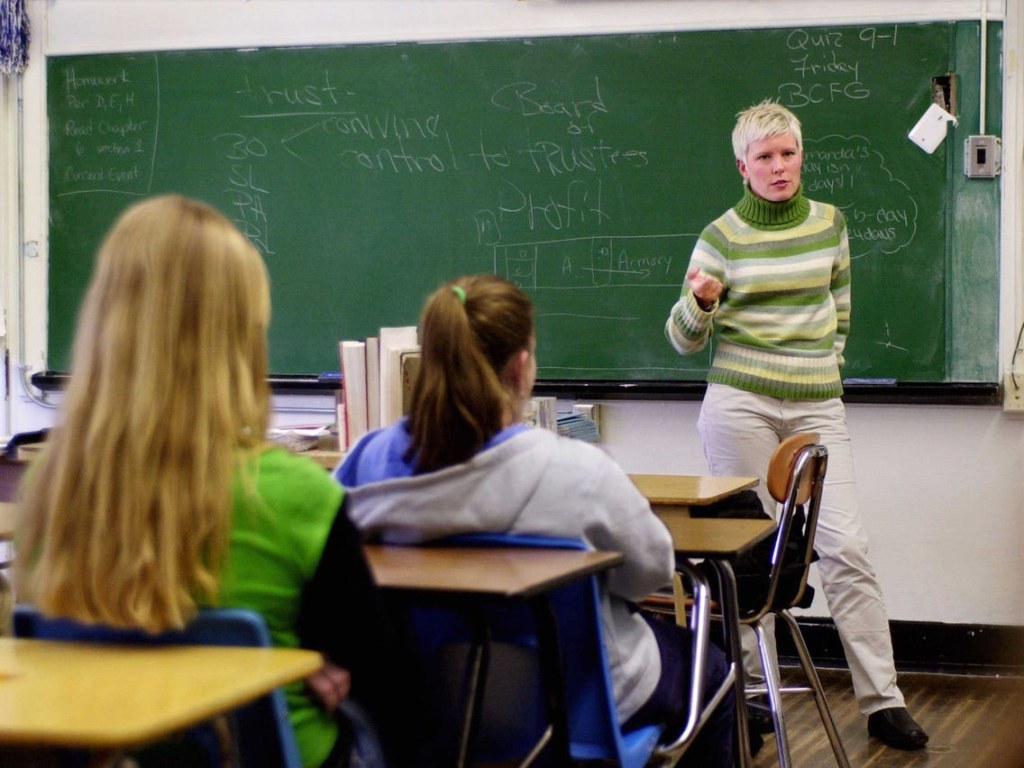Personal Finance in High School: A Guide to Financial Literacy
Gaining a solid understanding of personal finance is crucial for individuals of all ages, and high school is the perfect time to start building a strong foundation. With the right knowledge and skills, young adults can effectively manage their money, make informed financial decisions, and pave the way for a secure future. In this article, we will delve into the importance of personal finance education in high school and explore its various aspects.
Introduction: Empowering the Future Generation
Dear Readers,
Welcome to our comprehensive guide on personal finance education in high school. As young individuals embark on their journey into adulthood, understanding financial concepts becomes imperative. By equipping students with the necessary knowledge and skills, we empower them to make sound financial decisions that will positively impact their lives.
In this article, we will explore the world of personal finance in high school, including what it entails, who it benefits, when it is taught, where it is offered, why it is crucial, and how students can make the most of this valuable education.
What is Personal Finance in High School?
📚 Personal finance in high school refers to the education and practical application of financial concepts and skills, specifically tailored to high school students. It encompasses various topics such as budgeting, saving, investing, banking, debt management, and financial decision-making.

Image Source: insider.com
📝 By introducing personal finance education in high school, students are equipped with the knowledge and tools to navigate the complex world of finance confidently.
Why Should High School Students Learn Personal Finance?
🔍 Personal finance education in high school is essential as it provides students with the necessary skills to make informed financial decisions throughout their lives. By learning about personal finance at an early age, students can:
1️⃣ Develop responsible money management habits
2️⃣ Understand the importance of budgeting and saving

Image Source: nerdwallet.com
3️⃣ Learn about different types of investments
4️⃣ Gain knowledge on banking services and financial products
5️⃣ Learn to manage and avoid debt
6️⃣ Understand the impact of credit scores
7️⃣ Make informed decisions regarding college loans and student debt
By providing high school students with a solid financial education, we empower them to navigate the financial challenges they will face in adulthood and set themselves up for a secure future.
Who Benefits from Personal Finance Education in High School?
🎓 Personal finance education in high school benefits all students, regardless of their future career paths. Whether students plan to pursue higher education, enter the workforce, or start their own businesses, understanding personal finance is crucial for their financial well-being.
💼 Students planning to enter the workforce directly after high school can use their financial knowledge to manage their income, create budgets, and make informed decisions regarding expenses, savings, and investments.
🎓 For students planning to pursue higher education, personal finance education equips them with the tools to navigate student loans, understand financial aid packages, and make informed decisions regarding college expenses.
👨💼👩💼 Additionally, students with entrepreneurial aspirations gain valuable insights into managing business finances, budgeting for startups, and understanding the financial aspects of running a business.
In essence, personal finance education benefits all high school students, regardless of their future paths, by providing them with the necessary skills to become financially responsible individuals.
When is Personal Finance Taught in High School?
📆 Personal finance education can be incorporated into the high school curriculum in various ways. Some schools offer standalone personal finance courses, while others integrate financial literacy into existing subjects like mathematics, economics, or business studies.
🎒 The ideal time to introduce personal finance education in high school is during the freshman or sophomore year. This early introduction allows students to develop a strong foundation in financial literacy that they can build upon throughout their high school years.
Where is Personal Finance Education Offered?
🏫 Personal finance education is offered in various high schools across the country. Some states have mandated financial literacy courses as a graduation requirement, while others provide personal finance education as an elective or optional course.
🌐 In addition to traditional classroom settings, personal finance education resources are also available online. Various organizations and websites offer interactive courses, tutorials, and resources to supplement classroom learning and provide students with additional financial education opportunities.
Why is Personal Finance Education Crucial?
💡 Personal finance education is essential because it equips students with real-life skills that they will utilize throughout their lives. By providing young individuals with the knowledge and tools to manage their finances effectively, we empower them to:
1️⃣ Make informed financial decisions
2️⃣ Avoid common financial pitfalls
3️⃣ Navigate complex financial products and services
4️⃣ Plan for their financial goals and future
5️⃣ Cultivate responsible financial habits
6️⃣ Ensure financial security and independence
7️⃣ Contribute to the overall economic well-being of their communities
By prioritizing personal finance education in high school, we equip students with the tools to build a solid financial foundation, empowering them to thrive in their personal and professional lives.
How Can Students Make the Most of Personal Finance Education in High School?
🔑 To make the most of personal finance education in high school, students can:
1️⃣ Actively engage in classroom discussions and activities
2️⃣ Seek out additional resources and learning opportunities
3️⃣ Apply financial concepts to real-life situations
4️⃣ Set personal financial goals and track progress
5️⃣ Seek guidance from teachers, mentors, or financial professionals
6️⃣ Continuously educate themselves on evolving financial trends and practices
By actively participating in their financial education, students can maximize the benefits and develop lifelong financial skills.
Advantages and Disadvantages of Personal Finance Education in High School
Advantages:
1️⃣ Empowers students with essential financial skills
2️⃣ Enables informed financial decision-making
3️⃣ Teaches responsible money management
4️⃣ Develops critical thinking and problem-solving abilities
5️⃣ Fosters a sense of financial independence and security
Disadvantages:
1️⃣ Limited availability in some schools
2️⃣ Lack of standardized curriculum
3️⃣ Insufficient time dedicated to personal finance education
4️⃣ Varying quality of instruction
5️⃣ Potential budget constraints for schools
While personal finance education in high school offers numerous advantages, it is important to address its potential challenges and work towards enhancing its availability and effectiveness.
Frequently Asked Questions (FAQs)
1. Why is personal finance education important for high school students?
📌 Personal finance education is vital for high school students as it equips them with the necessary skills to navigate real-world financial challenges, make informed decisions, and secure their financial future.
2. Is personal finance education mandatory in all high schools?
📌 Personal finance education requirements vary by state and school district. Some states have mandated financial literacy courses, while others provide personal finance education as an elective or optional course.
3. Can personal finance education benefit students who do not plan to pursue a career in finance?
📌 Absolutely! Personal finance education benefits all students, regardless of their career paths. It provides them with the skills and knowledge to manage their finances effectively, regardless of their chosen profession.
4. How can students apply personal finance concepts in their everyday lives?
📌 Students can apply personal finance concepts in numerous ways, such as creating budgets, setting financial goals, tracking expenses, saving money, and making informed spending decisions.
5. What resources are available for students interested in further financial education?
📌 Students interested in further financial education can explore online resources, attend workshops or seminars, read personal finance books, and seek guidance from financial professionals or mentors.
Conclusion: Empowering a Bright Financial Future
In conclusion, personal finance education in high school is a valuable investment that equips students with essential financial skills and knowledge. By empowering young individuals to make informed financial decisions, we ensure their financial security and independence.
Dear Readers, we encourage you to embrace personal finance education and make the most of the resources available to you. Take control of your financial future and embark on a journey towards long-term financial well-being. Remember, the decisions you make today will shape your financial path tomorrow.
Final Remarks
📝 The information provided in this article is intended for educational purposes only and should not be considered financial advice. It is essential to consult with financial professionals or trusted advisors for personalized guidance tailored to your specific financial situation.
🌐 Additionally, personal finance practices and regulations may vary by country and region, so it is important to familiarize yourself with the laws and guidelines applicable to your location.
📚 Financial literacy is a lifelong journey, and we encourage you to continue educating yourself and staying informed about new developments in personal finance. With dedication and the right knowledge, you can achieve financial success and secure a brighter future.